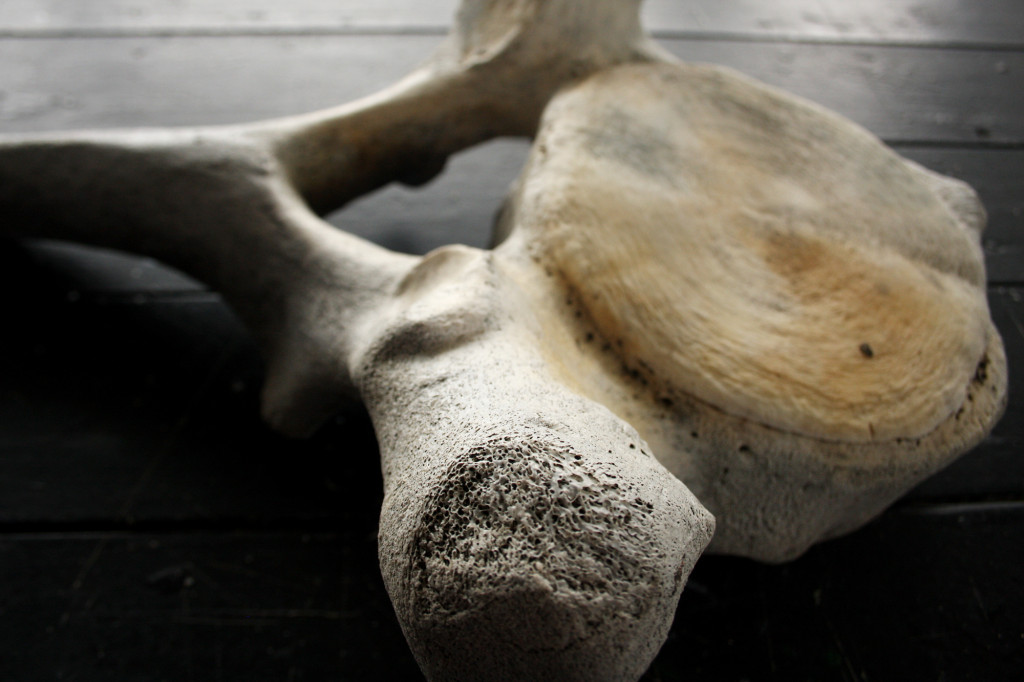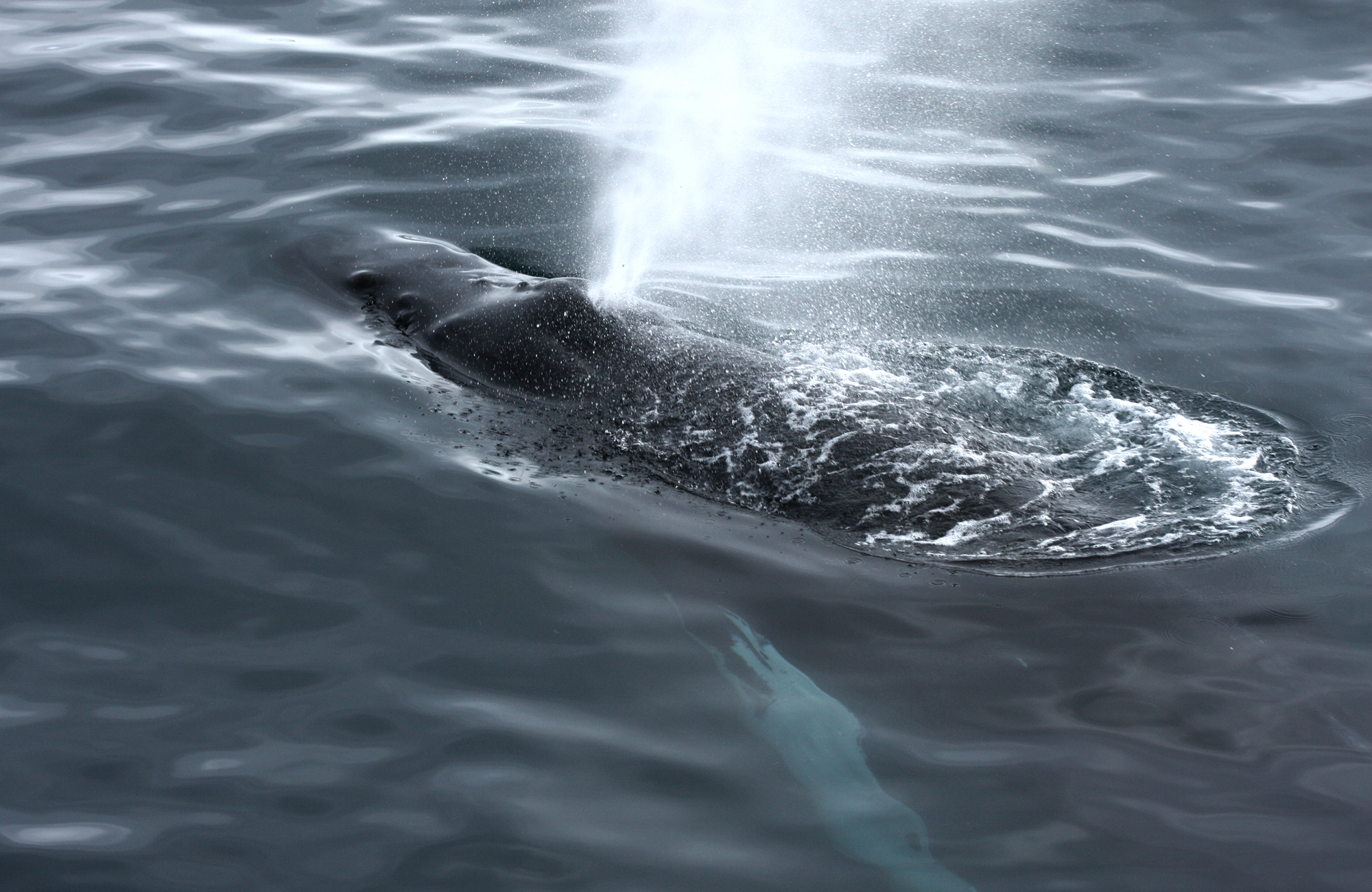Working as a whale-watching guide offers many perks. I get to see live whales regularly, photograph them, and share the joy of encountering these giants. Over the last two years I have dedicated much time to working with cetaceans in Húsavík, northern Iceland. But there is one thing that can dampen the experience for many people: whale breath.
When the boat is close enough to a surfacing whale, and the wind is coming in the direction of the boat, you can sometimes catch that characteristic whiff of rotting fish. But scientists are unclear on the exact cause of the smell. Dentist Tom Ford points out that the whale’s respiratory system is not connected to its digestive system. His theory is therefore that the smell is not caused by the whales’ diet; instead, he suggests the cause may be bacteria that has developed in the respiratory tract.
I personally relish the smell because it means those creatures are near the boats. Besides, it does not linger: it is just passing by and fading in with the salty smell of the ocean.
I have also smelled the smell of whale death as I photographed the advanced decomposition of a stranded sperm whale body. This is a tenacious smell. Although not as offensive as expected, it filled up my nose and my head, and didn’t leave me for days. I have also smelled the freshly dead entrails of a harbour porpoise and of a white-beaked dolphin. The porpoise got caught and drowned in a fishing net, and the juvenile dolphin was found stranded on a nearby beach, freshly dead. When dissecting their bodies, at the Húsavík Whale Museum, both had a dark, meaty kind of smell. It felt like being at the butchers.
As part of an art project in collaboration with the museum, I have macerated both bodies to clean the skeleton. After about a week of changing the hot water every day, the flesh, ligaments, and cartilage became mushy and the whole body was floating in its own oily soup of dead matter. The smell was highly offensive. It is impossible to describe and yet impossible to forget. Every day I would go home and shower thoroughly after changing the water, but I could still smell it throughout the rest of the day. After meeting a marine biologist who had many experiences in cetacean dissections, I have learned to wash the inside of my nose with soap, as the tiny particles which made up the smell in the air got stuck there. Even after I started washing the inside of my nose, I suspect it became psychological, as I could still smell it sometimes.
I also work with whalebones found on the beach. Even when white, bleached from the sun and washed thoroughly by the salty sea, they still smell of whale oil. Cetaceans have a remarkably high amount of oil in their bones compared to other vertebrates. During the twentieth century, whalebones were minced and cooked under steam pressure alongside blubber and flesh to produce oil. This was then used to make soap as well as lamp fuel and other commodities. The irony of it has to be noted: the smelly parts of dead animals turned into a cleaning agent.
 www.marinarees.co.uk
www.marinarees.co.uk
fjukartcentre.tumblr.com
www.whalemuseum.is




